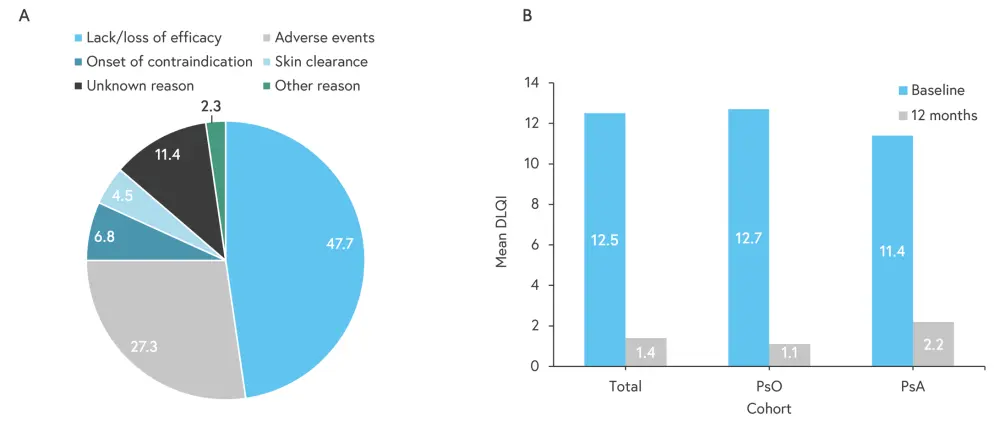All content on this site is intended for healthcare professionals only. By acknowledging this message and accessing the information on this website you are confirming that you are a Healthcare Professional.
The pso Hub website uses a third-party service provided by Google that dynamically translates web content. Translations are machine generated, so may not be an exact or complete translation, and the pso Hub cannot guarantee the accuracy of translated content. The pso and its employees will not be liable for any direct, indirect, or consequential damages (even if foreseeable) resulting from use of the Google Translate feature. For further support with Google Translate, visit Google Translate Help.
The PsOPsA Hub is an independent medical education platform, supported by educational grants. We would like to express our gratitude to the following companies for their support: UCB, founding supporter. The funders are allowed no direct influence on our content. The levels of sponsorship listed are reflective of the amount of funding given.
Now you can support HCPs in making informed decisions for their patients
Your contribution helps us continuously deliver expertly curated content to HCPs worldwide. You will also have the opportunity to make a content suggestion for consideration and receive updates on the impact contributions are making to our content.
Find out more
Create an account and access these new features:
Bookmark content to read later
Select your specific areas of interest
View psoriasis and psoriatic arthritis content recommended for you
PsoBest registry: Real-world outcomes of brodalumab for psoriasis and PsA
Brodalumab, an anti-interleukin 17 monoclonal antibody, is approved for use in adults with moderate-to-severe plaque psoriasis and has shown efficacy vs placebo for patients with psoriatic arthritis (PsA). However, there is a lack of real-world evidence for the safety and efficacy of brodalumab.
Here, we summarize an interim analysis by Schaeffer et al.1 published in Journal of Dermatological Treatment on the real-world outcomes of brodalumab in psoriatic disease from the German psoriasis registry PsoBest.
Methods1
-
The German psoriasis registry PsoBest, follows adult patients with moderate-to-severe psoriasis treated with systemic non-biologic or biologic treatment for the first time.
-
In this analysis, patients who were monitored for at least 12 months were selected (data cutoff June 30, 2021).
-
When selecting patients who had started brodalumab treatment (210 mg every 2 weeks), an analysis set of 227 patients was defined.
-
The Psoriasis Area and Severity Index (PASI) was used to measure clinical response.
-
The Dermatology Life Quality Index and Patient Benefit Index (PBI) were used to collect patient-reported outcomes.
Key findings1
-
Of the analysis cohort, 189 patients had psoriasis and 38 had PsA. Most patients were male (69.2%), with a mean disease duration of 22 years, and a baseline mean PASI of 18.0.
-
Within the observation period, 18.1% of patients discontinued treatment.
-
-
The mean time to discontinuation of brodalumab was 8.0 months for patients with psoriasis and 9.7 months for patients with PsA.
-
The most common reason for discontinuation was lack or loss of effectiveness (Figure 1A).
-
-
Mean PASI decreased from baseline to 12 months (18.0 to 2.3).
-
Mean Patient Benefit Index was maintained from 3 months to 12 months (3.0 to 3.1).
-
Mean Dermatology Life Quality Index decreased from baseline to 12 months (12.5 to 1.4, Figure 1B).
-
The mean drug survival rates were 96.6%, 86.4%, and 76.2% at 3, 6 and 12 months, respectively.
Figure 1. A Reasons for discontinuation of brodalumab and B mean DLQI from baseline to 12 months*

DLQI, Dermatology Life Quality Index; PsA, psoriatic arthritis; PsO, psoriasis.
*Data from Schaeffer, et al.1
|
Key learnings |
|
References
Please indicate your level of agreement with the following statements:
The content was clear and easy to understand
The content addressed the learning objectives
The content was relevant to my practice
I will change my clinical practice as a result of this content
Your opinion matters
On average, how many patients with plaque psoriasis do you see per month?

